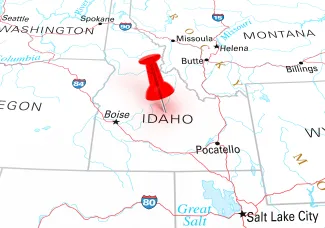
Pollution violations continued at Idaho sewage plants in 2023, report says
Click play to listen to this article.
(Northern Rockie News Service) A new report finds pollution violations at wastewater treatment plants have been a problem in more than half of Idaho's communities.
The Idaho Conservation League's annual study of the state's sewage treatment plants says 58 percent violated Clean Water Act standards during 2023.

Will Tiedemann, the regulatory conservation associate with the Idaho Conservation League, said his organization didn't find much change between 2022 and 2023.
"It was kind of the status quo as continued from last year," said Tiedemann. "There were still a significant number of facilities across Idaho who violate. And of that, you know, it's usually ten, eleven, twelve facilities who make up the lion's share of that."
Tiedemann said his organization continued to study not just violations but loads over limits, or the severity of the violation.
Three facilities, in Driggs, Parma and Preston, accounted for about a third of total violations. On the positive side, 47 cities and towns did not report any violations in 2023.
Tiedemann said violations typically occur because of elevated levels of phosphorous or nitrogen from an excess of nutrients.
He noted that excess nutrients can create problems for water bodies, such as algae blooms.
"There are real world consequences," said Tiedemann, "for the environment and for recreation and for human health."
Tiedemann said violations occur more often in smaller communities - and there's a reason for that.
"Large cities in Idaho have a tax base to where they can have more advanced treatment systems," said Tiedemann. "They have more things to treat but they kind of have an outsized availability of resources to address that. But lots of smaller towns in Idaho don't always. They have limited budgets."
















